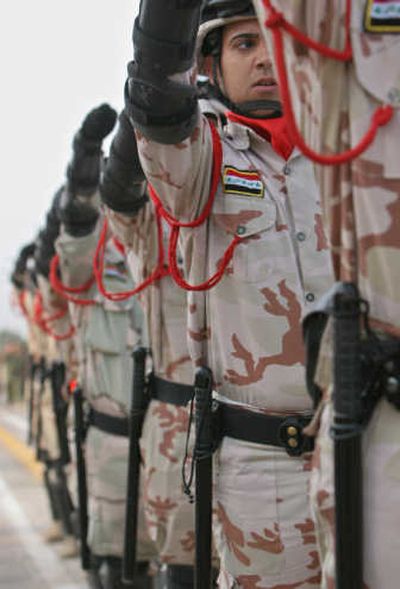Iraqis retake Basra control from Britons

BASRA, Iraq – During a low-key ceremony Sunday, Britain formally handed over control of security responsibility for Basra province to Iraqi authorities, marking a significant step toward Iraqi sovereignty.
“This day is a big day in the history of Basra and the history of Iraq,” Iraqi national security adviser Mouwafak al-Rubaie told a group of at least 100 dignitaries and other guests gathered in the arrival lounge at the Basra airport. “It is a huge test for the Basraris to be in charge … to determine their own fate and to rebuild the city.”
Basra is the last of four southern provinces under British control to be returned to the Iraqis.
Britain is expected to draw down its remaining 4,500 troops to about 2,500 by spring, and all have pulled back from central Basra city. They will enter the city, Iraq’s second-largest, only when a crisis occurs that exceeds the capacity of the Iraqi security forces, British officials said.
“I came to rid Basra of its enemies, and I now come to hand back Basra to its friends,” said Maj. Gen. Graham Binns, the British general officer commanding.
Binns commanded British troops when they first arrived in Basra in 2003, and on Sunday he joined Basra governor Muhammad Musbih Wa’ili in signing a Memorandum of Understanding marking the hand over of control.
Violence in Basra has abated to a manageable level in recent months, British military officials said, allowing for the move.
But the fact that the ceremony was held not in the city but in an airport lounge underscored the still-fragile nature of security in town.
The British have touted their withdrawal as an indication of the calmer situation on the ground and point to the transfer to Iraqi security forces as a model for establishing stability elsewhere in Iraq. They insist that the strategy has forced the provincial government to take charge and push warring Shiite Muslim militias to reconcile.
“Basra security institutions have proven that they are capable,” Binns said, adding that British forces would continue to train the province’s security forces.
“As you step up, we set back,” Binns said.
U.S. officials remained skeptical that Basra could serve as a model for the rest of the nation, because Basra’s largely Shiite ethnic composition is different than that of other areas where Shiites and Sunni Arab militants repeatedly have clashed.